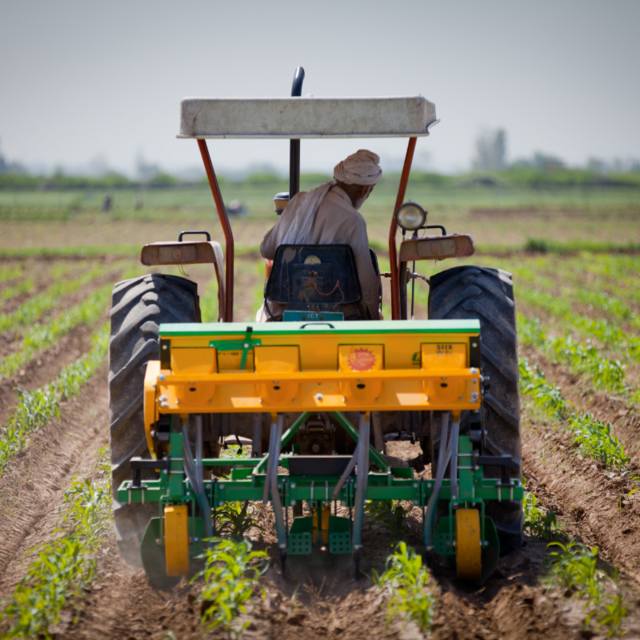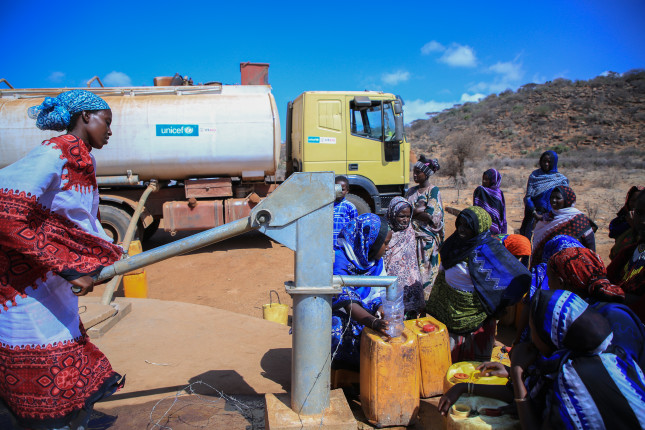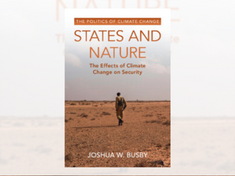-
New Global Health & Gender Policy Brief: Global Fertility Rates and the Role of Infertility
›
While the world’s population now approaches 8 billion people, global fertility rates have been declining for decades. The overall drivers of this decline include increased access to contraception and reproductive health care, an increase in women seeking higher education, women’s empowerment in the workforce, lower rates of child mortality globally, increased cost of raising children, and overall greater gender equality.
-
Addressing the Global Food Crisis: CIMMYT Experts Weigh In
› The confluence of climate change, COVID-19, and the war in Ukraine have placed enormous stress on food systems across the globe. Food insecurity spiked in 2020 and has stayed high, and the number of undernourished people is on the rise.
The confluence of climate change, COVID-19, and the war in Ukraine have placed enormous stress on food systems across the globe. Food insecurity spiked in 2020 and has stayed high, and the number of undernourished people is on the rise. -
Confronting Seismic Shocks: New WQ Article Looks at “Russia’s War on Natural Resources”
›July 29, 2022 // By Claire Doyle When Russia struck a deal with Ukraine on July 15, there was hope that millions of tons of food would once again be able to flow from the embattled country. Under the agreement, brokered by Turkey and the UN, Russia would lift naval blockades and allow large-scale shipments of grain to leave Ukraine’s ports.
When Russia struck a deal with Ukraine on July 15, there was hope that millions of tons of food would once again be able to flow from the embattled country. Under the agreement, brokered by Turkey and the UN, Russia would lift naval blockades and allow large-scale shipments of grain to leave Ukraine’s ports. -
Biodegradable Plastic in Chinese and U.S. Agriculture: Hero or Villain?
›Biodegradable plastic mulch seems like a dream come true for organic farming. Its use eliminates the need for herbicides and pesticides, conserves water, extends the growing season, and allows for the harvesting of clean fruits and vegetables. This mulch also lightens the load of farmers. Rather than assuming the expense and labor to gather up and haul plastic mulch to a landfill, farmers can till biodegradable mulch safely back into the soil. Yet these benefits will only be realized if biodegradable mulch films are 100 percent degradable by microbes in nature, and if they break down to carbon dioxide, water, and minerals without damaging the soil. -
How Gender Inequality Drives the Global Crisis of Unintended Pregnancy
›
“Half. This is the proportion of all pregnancies that are unintended. That is 121 million pregnancies every year,” said Sarah Craven, Director of the Washington D.C. Office at UNFPA during a recent U.S. launch event for the 2022 UNFPA State of World Population (SWOP) report. “For these women, the most life altering reproductive choice, whether to become pregnant or not, is no choice at all. This is an unseen crisis unfolding right before our eyes.”
-
Beyond a “Threat Multiplier”: Exploring Links Between Climate Change and Security
›
Ever since the CNA’s Military Advisory Board—composed of former U.S. military personnel—named climate change as a “threat multiplier” in a 2007 report, the term has gained widespread currency both in environmental and national security circles. It also has propelled the need to assess and address climate-related security risks higher up overall policy agendas.
-
Climate Finance: Can Integrity and Transparency Prevent Environmental Catastrophe?
›
Earlier this year, the IPPC published yet another report underscoring the fact that rapid climate action is needed to limit global warming and avoid further irreversible, devasting environmental impacts. Over the next decade, the report calls for urgent, unprecedented social and economic transitions to reduce emissions and enable climate resilient development for vulnerable people.
-
Transformative Climate Security: A Conversation with Josh Busby
› Why does climate change lead to especially bad security outcomes in some places but not others? In this week’s New Security Broadcast, Josh Busby, Associate Professor at the LBJ School of Public Affairs at the University of Texas-Austin, discusses the latest thinking on this essential question as laid out in his new book, States and Nature: The Effects of Climate Change on Security, with ECSP Program Associate, Amanda King, and ECSP Senior Fellow, Sherri Goodman.
Why does climate change lead to especially bad security outcomes in some places but not others? In this week’s New Security Broadcast, Josh Busby, Associate Professor at the LBJ School of Public Affairs at the University of Texas-Austin, discusses the latest thinking on this essential question as laid out in his new book, States and Nature: The Effects of Climate Change on Security, with ECSP Program Associate, Amanda King, and ECSP Senior Fellow, Sherri Goodman.
 A Publication of the Stimson Center.
A Publication of the Stimson Center.

 The confluence of climate change, COVID-19, and the war in Ukraine have placed enormous stress on food systems across the globe.
The confluence of climate change, COVID-19, and the war in Ukraine have placed enormous stress on food systems across the globe.  When Russia struck a deal with Ukraine on July 15, there was hope that
When Russia struck a deal with Ukraine on July 15, there was hope that 



 Why does climate change lead to especially bad security outcomes in some places but not others? In this week’s New Security Broadcast, Josh Busby, Associate Professor at the LBJ School of Public Affairs at the University of Texas-Austin, discusses the latest thinking on this essential question as laid out in his new book,
Why does climate change lead to especially bad security outcomes in some places but not others? In this week’s New Security Broadcast, Josh Busby, Associate Professor at the LBJ School of Public Affairs at the University of Texas-Austin, discusses the latest thinking on this essential question as laid out in his new book, 

